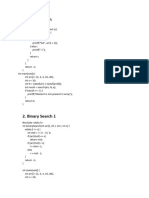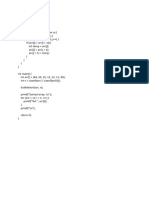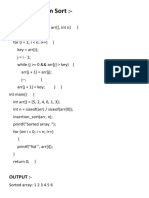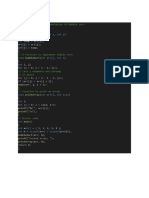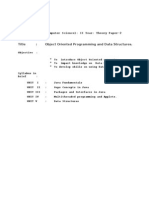0% found this document useful (0 votes)
26 views29 pagesDAA File Anshul Kotwal
The document contains multiple programs demonstrating various sorting algorithms and tree operations. It includes implementations for Binary Search Tree, Insertion Sort, Bubble Sort, Selection Sort, Shell Sort, Counting Sort, Quick Sort, Merge Sort, and Heap Sort. Additionally, it features a program for graph traversal using BFS and DFS with an adjacency list representation.
Uploaded by
hawilim456Copyright
© © All Rights Reserved
We take content rights seriously. If you suspect this is your content, claim it here.
Available Formats
Download as DOC, PDF, TXT or read online on Scribd
0% found this document useful (0 votes)
26 views29 pagesDAA File Anshul Kotwal
The document contains multiple programs demonstrating various sorting algorithms and tree operations. It includes implementations for Binary Search Tree, Insertion Sort, Bubble Sort, Selection Sort, Shell Sort, Counting Sort, Quick Sort, Merge Sort, and Heap Sort. Additionally, it features a program for graph traversal using BFS and DFS with an adjacency list representation.
Uploaded by
hawilim456Copyright
© © All Rights Reserved
We take content rights seriously. If you suspect this is your content, claim it here.
Available Formats
Download as DOC, PDF, TXT or read online on Scribd
/ 29

































